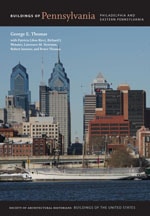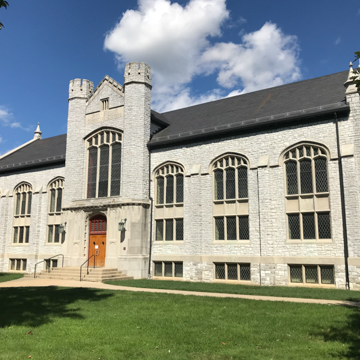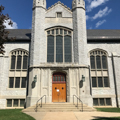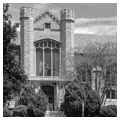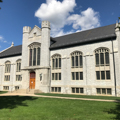Dominating the central campus is the library, a broad Gothic Revival bulk with a pair of crenellated towers framing a Tudor-arched portal. It is a late and uncharacteristically historicizing work of the Furness office, long after its founder's death. Perhaps it was a secondary commission that followed the former Valley National Bank (see FR1) on the town square. Based on Cope and Stewardson's design for Bryn Mawr College's M. Carey Thomas Library (MO9.6), it suggests that women's colleges borrowed happily from one another. Other buildings on the campus are evidence of the different forces pulling at the college. Charles Bolton, favored architect of the Presbyterian Board of Church Erection, but also designer of several buildings at Lafayette College, designed Lortz Hall (1922) in a style similar to the library, while New York City architects Ludlow and Peabody (whose work included a number of collegiate buildings at Vanderbilt University) designed Riddle Hall (1927) and Warfield Hall (1929), which form the visual pendant to the library and together frame the central green.
You are here
John Stewart Memorial Library
If SAH Archipedia has been useful to you, please consider supporting it.
SAH Archipedia tells the story of the United States through its buildings, landscapes, and cities. This freely available resource empowers the public with authoritative knowledge that deepens their understanding and appreciation of the built environment. But the Society of Architectural Historians, which created SAH Archipedia with University of Virginia Press, needs your support to maintain the high-caliber research, writing, photography, cartography, editing, design, and programming that make SAH Archipedia a trusted online resource available to all who value the history of place, heritage tourism, and learning.

